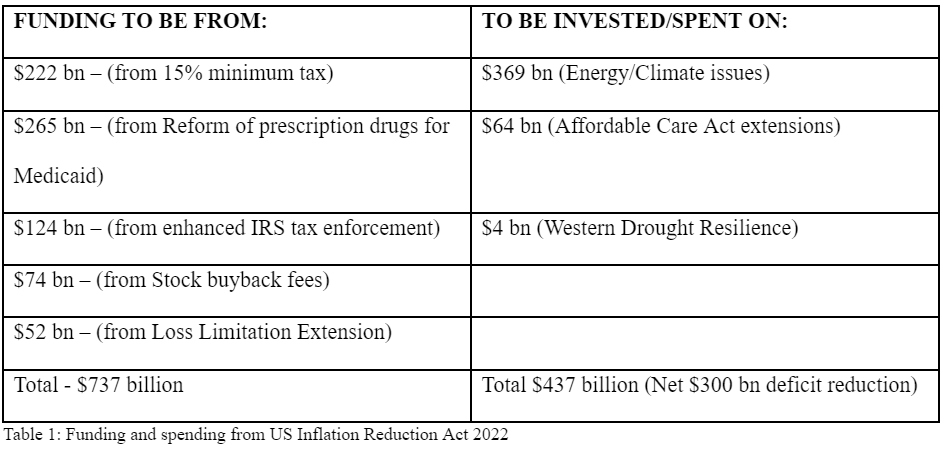I have been ruminating at length about Nigeria’s inflation. Known as man’s worst enemy in monetary economics circles, inflation stands at 22.41% in Nigeria today, with prospects of rising even further. Ghana, our next-door Anglophone nation, has seen 45% inflation before some slight improvements. How do we ensure we don’t get to that level – especially considering the need to expand the economy, spend on palliatives, be aggressive about infrastructural development, accede to some salary increases across the board, and pursue all of the very laudable promises of President Bola Tinubu at the campaign stump?
Also, considering the removal of fuel subsidies, there need to be some inflation management strategies. We cannot just wait for anyone to do whatever they wish with prices. We cannot be more capitalist than the most capitalist of nations by throwing our people into the fangs of ‘market forces’, which are most times in our clime unscientific, arbitrary, and even exploitative. On the day after the fuel subsidy was removed, an economist on national TV said he bought a watermelon for N2,000 which he used to buy at N800. When the seller was challenged, he claimed that fuel prices had increased by the same percentage (150%). But is it that petroleum is the only variable and ingredient that makes up watermelon? That is price gouging right there! Exploitation by those who believe they can get away with it. Government must be there to backstop the poorest amongst us – and the not-so-poor.
We can even take things further. We can calibrate our response to the diverse challenges we have – high inflation, low productivity, low growth, infrastructure deficit, economic ossification – from a positive angle as readers will see shortly. You see, we have a choice – to look at things from a dark, pessimistic angle, and remain low, unfulfilled, challenged, with no joy for as far as the eyes can see. Or we could be optimistic, hopeful, and aggressive, and like a judoka, use the strengths of our adversaries (these problems we have), to flip them over. This is what the US has done with what she calls the Inflation Reduction Act 2022, otherwise named Infrastructure Investment and Jobs Act 2022, signed in November 2021 and aimed at reducing the deficit by $300 billion and lowering inflation. We should examine the name of the act again. From infrastructure and investments to jobs. And all of a sudden, it is christened an Inflation Reduction Act. American lawmakers and executives know what their issues are. Like us in Nigeria and perhaps everywhere else in the world, they need investments, they need to provide jobs for teeming youths and adults, and they need to fix decaying infrastructure.
We need to think in that manner, especially at this material time when we have these issues aplenty with us. We need to put on our thinking caps and project outside some little boxes that we have constructed for ourselves. Thankfully, Nigerians have now seen just snippets of a serious-minded, philosopher of a president, who will start rallying his forces shortly to tackle the effects of the fuel subsidy removal, the existing job crisis, infrastructure disaster, underproductivity in the land, and of course, spiked inflation.
Advertisement
Table 1 below shows where the act intends to find funding and what such funds will be spent on, including the savings in deficits therefrom:

Targets of the act
Advertisement
- Targeted at Clean Energy/ Climate Action
- To modernise the Electricity Grid
- To build a nationwide network of Electric Vehicle (EV) chargers
- To strengthen battery supply chain
- To expand public transit and passenger rail
- To invest in new clean energy and emissions reduction technology
- To improve resilience in physical and natural systems
- To clean up legacy pollution in communities
- To create new, high-quality jobs – including union jobs – with good benefits and supportive services that build pathways for the middle class
- To raise $737 billion with an investment of $437 billion, thereby lowering the deficit by over $300 bn
- To enable Medicare to negotiate lower prescription drug prices and extend ACA (Affordable Care Act) to 2025.
- To lower inflation, invest in energy production, and reduce healthcare costs.
- The act establishes 15% minimum corporate tax for large companies that report more than $1 billion in income annually. $222 bn taxes is expected to be raised therefrom.
- To lower ACA healthcare premium for millions of Americans, establish a cap of $2,000 annually for out-of-pocket drug costs for people on Medicare and a $35 monthly cap for insulin for 65-year-olds and above.
- To ensure that there are no new taxes on low-income families earning $400,000 and below, annually.
- To ensure that companies that refuse to negotiate prices of 10 high-cost drugs are to be taxed at 95% (sales tax) on the drugs. The list of 10 will grow to 20 by 2029.
- To ensure that drug companies that raise prices faster than the rate of inflation must pay rebates to the government for the price difference.
- To allocate $80 billion for IRS tax enforcement
- To ensure that $52 billion is recouped from limiting lost revenues to private equity companies by limiting loss deductions from revenues
- To establish tax credit for solar/wind/geothermal/battery storage/biogas/ nuclear/hydrogen/ Electric Vehicles. Such EVs MUST be produced in North America
- To increase royalties on fossil fuel producers
- To recharge and protect important lakes – Salt Lake, Salton Sea, Lake Mead, Lake Powel etc
The point I am struggling to make is for us to see that the thinking around inflation has changed. Even the most capitalist nations are taking what may be termed as ‘activist’ measures. I mean, look at numbers 13 -17 above, and even 19 and 20! You couldn’t make this up.
Also, we need to see just how the law is fashioned in a multisectoral, kaleidoscopic fashion, using one stone to kill several birds. Government is power; it owns the entire field of play and can use resources from anywhere to solve problems. No one should be able to stand in the way of government. We can see how the Americans are trying to solve their biggest problems – healthcare, energy, climate – by taxing the rich more, and by focusing on patriotism in providing local jobs. The plan has of course been criticised in some quarters. It is doubtful what impact it will really have on reducing inflation even though American inflation has receded (perhaps with the control of price gouging). I think we should give something like this a trial and finally wake up under the guidance of President Bola Tinubu.
Despite what may now be termed a barrage of bitter pills – fuel price deregulation, Naira floating, electricity price increases – and the attendant inflation spike, there needs to be a rejig of how we approach these issues. We must show that we can think for ourselves. And we could learn a lot from the US experience where they have crashed inflation to 4.0% when others are struggling with orthodox and ineffective ideas. The write-up title ‘Are we thinking about inflation all wrong’ remains very apposite.
Advertisement
Views expressed by contributors are strictly personal and not of TheCable.
Add a comment







